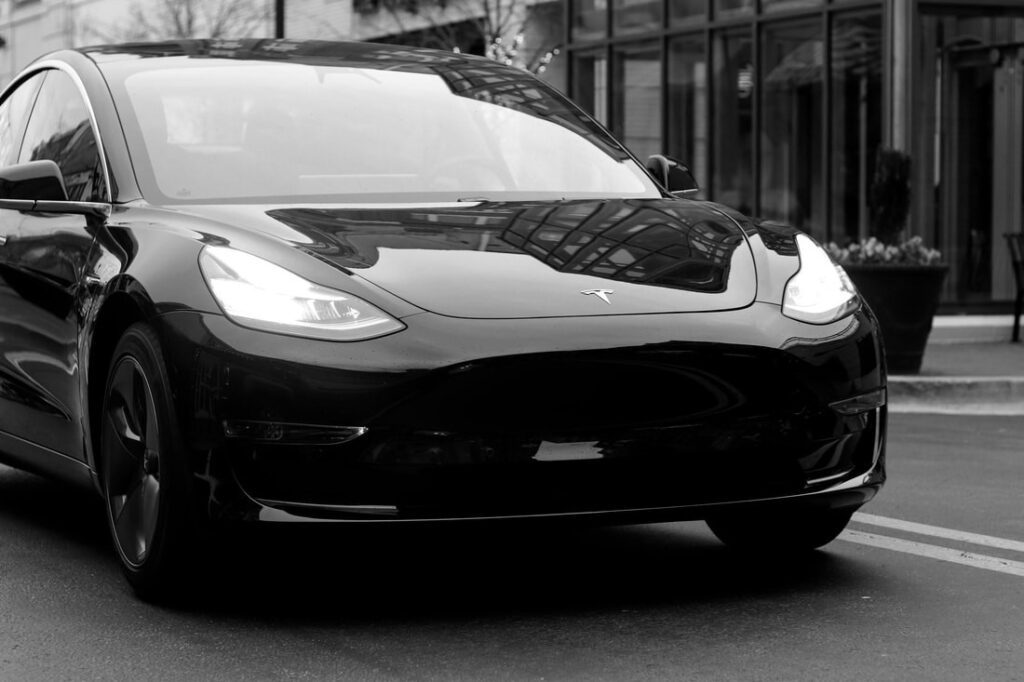
Electric Cars: The Sustainable Solution Driving a Brighter Future
Technology is always evolving. With increased awareness of the environment and the well-being of the planet, innovation is taking the lead in green.
Revisiting and reimagining existing everyday products is happening as we speak – one such invention is the car. Our humble vehicles take us from point A to point B, and while some of us don’t give much thought to the fuel and emissions our motors emit, they still come at a cost to our Earth. Luckily, more eco-friendly transport options are joining the fast lane.

Credits: Conor Williams, Unsplash
Electric cars are already here, and they’re only getting better as we evolve. But first, what exactly are electric cars, how do they work, and are they considered green transportation?
What electric cars are and how they work?
Electric cars are vehicles powered by electricity rather than diesel or gasoline. Some special cars are even fuelled by hydrogen from fuel cells that transform the chemical into electricity. Generally, electric cars are cleaner in terms of greenhouse gas emissions and air pollution as they harbour no exhaust.

Credit: Michael Marais, Unsplash
The electric car was first conceived in 1830 when inventor Robert Anderson attempted to build one with non-rechargeable cells. While that model never took off, novel designs and feats in engineering ensure the potential future of eco-friendly transport today.There are two types of electric cars. The first relies on plug-ins or charging ports to fuel them up, while the second is an auto-charge, requiring fuel that automatically charges the battery when not being used – these are Hybrid vehicles.
Examples of these cars include the Nissan Leaf, the Toyota Prius, and, of course, the renowned Tesla additions.

Credit: Tech Nick, Unsplash
Statistics of fuel-dependent cars
Steel, glass, plastic, rubber, and battery acid – are a few of the many materials it takes to make a car. Each item has already forgone the production phases that each cost the earth. Now, a profusion of already-harming products crafts your motor. Even before hitting the road, cars cause chaos to the Earth’s well-being.

Credits: Egor Vikhrev, Unsplash.
However, it’s the driving of the car that creates the most damage. Greenhouse gasses are constantly emitted while the car uses litres of petrol and gasoline to manoeuvre. The very extraction of petroleum from the Earth is already devastating enough, both short and long-term – and the demand is only increasing.Fortunately, our society is slowly shifting to a more sustainable future.
Energy sources and environmental impact
Electric cars are paving the highways to the future, but how eco-friendly are they right now?
An already produced and purchased electric car is currently less dependent on fossil fuels as it requires no petrol. Since there is no exhaust, between 17 and 30% fewer emissions are being released into an already hampered atmosphere.
Electric cars are manufactured using more recyclable and reusable materials, ensuring not every piece is simply thrown away after one life span. Furthermore, electric cars need lower maintenance, saving more resources and money.
In essence, an electric car is better for the environment in terms of air pollution, more recyclable, and relies less on fossil fuels. That sounds like the perfect option, right? While they’re more eco-friendly than your average car, there are still some vital setbacks that need to be addressed before labelling these cars as the ultimate solution to transportation.
An electric car requires between 9 and 13 hours to charge, and they need electricity to power up. This electricity often comes from the city’s electric grid, which utilises…fossil fuels. This creates yet another closed circuit of resources that harm the environment further. Hybrids rely on petrol to charge the battery anyway, so while they’re more fuel-efficient, they still depend on it.

Credits: Ernest Ojeh, Unsplash
But even before they need charging, the actual production of electric cars creates huge amounts of waste. These cars rely on Lithium-ion batteries to operate, which often have a short lifespan. Once dead, it’s extremely difficult to reuse these batteries, and the disposal of such batteries often isn’t performed with caution.In addition, electric cars use more emissions to create than a normal car. In fact, more than one-third of the car’s lifetime-emitted CO2 is made during the production phases.
There are two sides to every coin, and there’s no difference when it comes to electric cars. They’re far superior and more eco-friendly than their fossil-fueled counterparts but more harmful in other aspects. Luckily, this is fast improving with time and the scientific and technological advancements it brings. These innovative changes to transportation are already at our doorstep, or shall I say garage.
Tesla
We’ve all heard of Elon Musk’s brainchild, Tesla. This company is at the zenith of innovation and engineering. And now, they’re summiting the peak of electric cars.

Credits: Presilla Du Preeze, Unsplash
The design and technology harnessed for Tesla cars are unparalleled. Each motor uses significantly fewer parts than any other car, resulting in decreased production levels and greenhouse gas emissions. In fact, the company is incredibly switched on when it comes to saving the environment. Tesla’s mission statement is to “accelerate the world’s transition to sustainable energy.”Tesla cars have their unique charging ports independent of the electrical grid, relying on and charging solely off solar power. This method has saved over 75 million gallons of gasoline. “We are focused on creating a complete power and transportation ecosystem from solar generation and energy storage to all-electric vehicles,” their impact report says.

Credits: Torbjorn Sandbak, Unsplash
Tesla tracks their emissions at every stage, from manufacturing and warehouse use to retail and charging; they’ve thought about it all. Their concern for a sustainable future is even apparent in small details, such as the lights in the car being LED and the paint used is eco-friendly. Tesla’s ultimate goal is to power all transportation using 100% renewable energy, and it looks like their dream will soon become our reality.
Conclusion
Cars will always be around. Their invention has saved time and become one of the world’s largest dependencies. Now more than ever, we need to rethink the transportation world to mitigate the harm we’ve already created.
Electric cars are driving sustainable solutions. But – although we’re not quite there yet – with the rise of Tesla a light can be seen at the end of the tunnel, and the rugged road we’ve been following can take a sharp turn for the better.
There are many questions that still lack efficient answers, like how will developing countries receive charging ports and how will we tackle the grand challenge of waste management. Still, we can conclude – the future is electric.
References:
- https://www.ucsusa.org/resources/what-are-electric-cars#:~:text=Electric%20cars%20run%20at%20least,batteries%20or%20a%20fuel%20cell.
- https://news.motors.co.uk/electric-cars-guide/
- https://www.edfenergy.com/for-home/energywise/electric-cars-and-environment#:~:text=How%20does%20electric%20car%20production,part%20of%20an%20electric%20car.
- https://hbr.org/2020/02/how-tesla-sets-itself-apart
- https://www.tesla.com/ns_videos/tesla-impact-report-2019.pdf
- https://www.nationalgeographic.com/environment/article/environmental-impact?loggedin=true
By Georgia Carter




